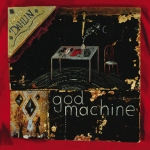All that jazz
Emilia Dahlin delivers on her potential with God Machine
With natural charisma that fills up any room she’s in, Emilia Dahlin hardly has to take chances. She could stand up on stage, her five-foot frame half hidden by a big acoustic guitar, and sing just about anything, daring the audience not to fall in love with her. Instead, she’s assembled a crack band, delved into creative jazz phrasings, and nearly completely thrown off an early reputation as your standard girl-power singer/songwriter.
 It’s taken a fair bit of work, of course. Dahlin has never shied from gathering a fanbase, promoting herself and using the folk infrastructure to get her music in front of people whose opinions other people take note of. From showcasing for college booking agents to making the finals of the NEMO and Telluride Music Festival songwriting competitions, winning the Best Music Poll in surprise fashion in 2005 or as the favorite this year, Dahlin has used what’s out there to build the impressive resume of a professional musician [this review originally ran in June 2006].
It’s taken a fair bit of work, of course. Dahlin has never shied from gathering a fanbase, promoting herself and using the folk infrastructure to get her music in front of people whose opinions other people take note of. From showcasing for college booking agents to making the finals of the NEMO and Telluride Music Festival songwriting competitions, winning the Best Music Poll in surprise fashion in 2005 or as the favorite this year, Dahlin has used what’s out there to build the impressive resume of a professional musician [this review originally ran in June 2006].
In 2004, she released Emilia, a reintroduction of sorts to the Portland scene, building on songs first worked out on her Stealing Glimpses EP. There was some plus songwriting, and touches of the aggression and self-confidence she exuded in person, but now, with her sophomore full-length, it appears Dahlin is ready to fulfill her ample potential. In these days of independent releases, we often hear what would have been demos as debuts and have the opportunity to watch artists evolve on successive albums. When a performer works as hard is Dahlin, and is willing to let other musicians contribute, it’s worth watching.
On her new album, God Machine, Dahlin has fully embraced the jazzy sound she introduced with “No End” last album. Right out of the gate, with the infectious and tantalizing “Candy,” Dahlin meshes her capable band, which seems to want to push her into interesting arrangements and upbeat flourishes. “Candy” opens with Dahlin on a freakin’ accordion, for cripe’s sake. But she’s still a songwriter at heart, and “Candy” also has her talent for turning a phrase on display. How’s this for an opening couplet? “Candy was the sweetest girl, as sweet as sweet could be/ And all the boys with sweet tooths wound up with cavities.” It’s delivered, too, with a burlesque affect, dripping with sass. It threatens to get a little too cute, but Dahlin senses that and cuts it off at 2:12.
That leaves Adam Frederick to open the next tune, “Home to Grey,” with an urgent break on his standup bass, which you’ll have a hard time ignoring throughout the disc. Here Dahlin puts on her best charm, using her true voice, which doesn’t have a hint of husk or breathiness, and delivering a fisherman’s song, of leaving home on the ocean to make a fortune and missing home. Later, in “Sad Affair,” we get a tale of an illegal immigrant, which is certainly politically poignant, and Dahlin does her best Nelly Furtado in trying to sell it and mostly succeeding. Drummer Seth Kearns trades in his kit here for the sabar and kashini (think congas), and Dahlin’s flamenco turn on her acoustic guitar completes the effect.
This song particularly, but the album as a whole, is mic’ed exceedingly well by recording engineer Jim Begley, whose work at the Studio and on the Big Easy soundboard is always above average. There’s virtually no feeling of a room, but neither does the disc sound manufactured. Every sound is crisp and well placed.
The album’s title track starts with a nice Begley touch, a hollowed out guitar and vocals, like listening to a transistor radio, lending the creepy, historic vibe the song requires. Dahlin leads with the old children’s rhyme, “Trot, Trot to Boston,” then segues into a Cab Calloway tale of a religious nut who thought he’d found God in industry. But Dahlin wags her finger at him, “oh no, no, no, no, no, no, no,” super sexy, with multiplied vocals tracks going higher and higher in the register. Here, too, newly found guitarist Maxwell Cantlin is excellent with his work on the electric guitar, doing a nice Pat Metheny impersonation at times.
The resulting album as a whole establishes Dahlin as a genuine chanteuse, less annoying than Diana Krall and not nearly as coy as Nora Jones. She’s got the female empowerment thing going on, clearly, but she doesn’t try to cram it down your throat and you get the impression she’s having a great deal of fun. Like her live shows, you’ll be won over right out of the box.
In the second half of the disc, she actually scats her way through “Loneliness Is …” Seriously. When was the last time you heard scat on a local album? It’s been years for me. It’s a ballsy choice, but it’s a chance that Dahlin likely took without a second thought, and I dare you not to love it.
Photo credit: Featured imaged by Sam Cousins.

